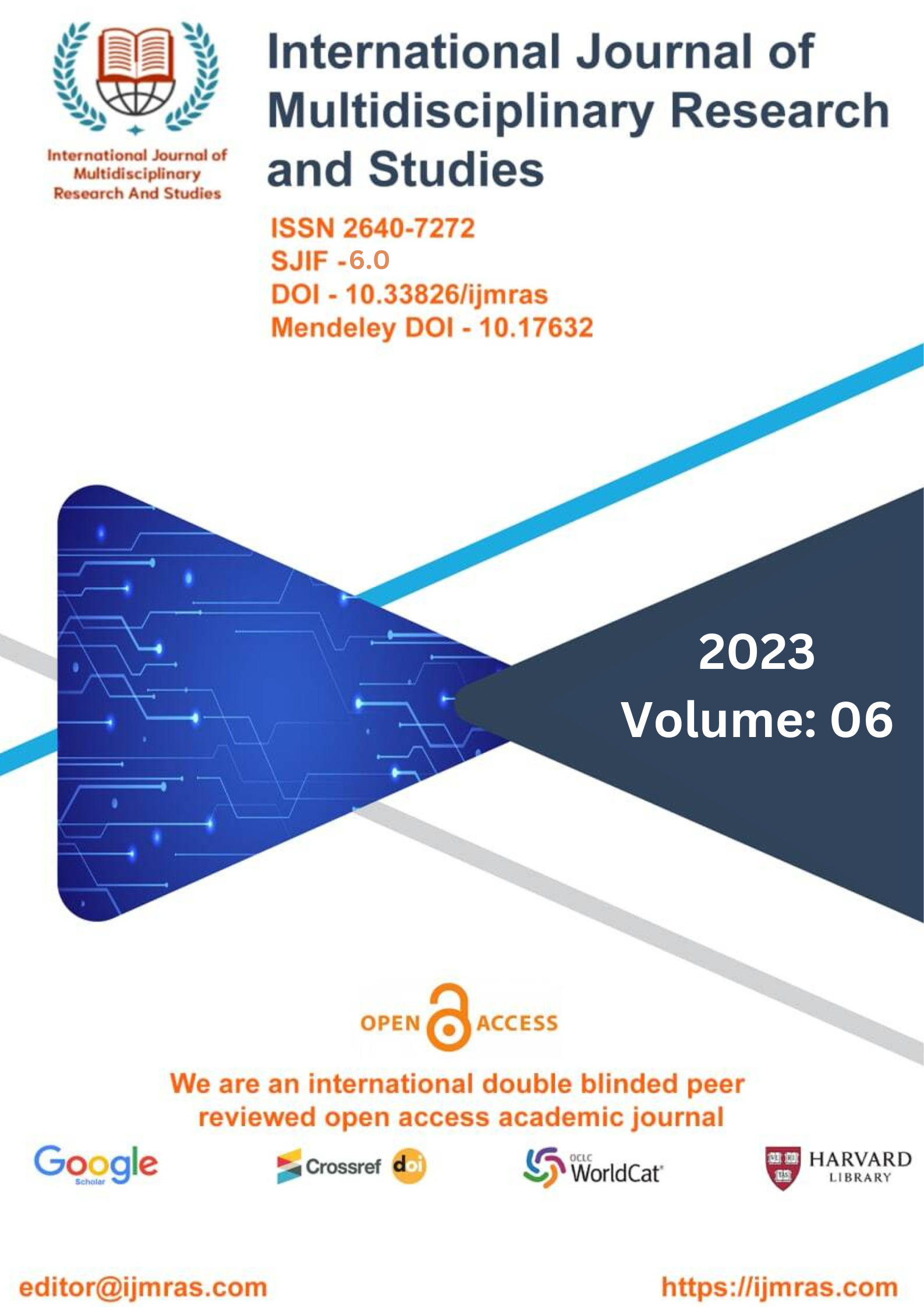CASE STUDY ON THE ROLE OF HIGH SCHOOL TEACHERS IN PROMOTING GLOBAL CITIZENSHIP SKILLS FOR DEVELOPING GLOBAL GOVERNANCE

Abstract
Global citizenship education (GCE) has gained significant attention to foster a more just and sustainable world. This research paper presents a case study of the Role of the Science and language teacher in implementation of GCE in a NIS, Chemistry and Biology, Shymkent, Kazakhstan. This study also focusses for the impact on understanding the GCE components after two days workshop conducted by authors. The study employs a critical analysis approach, drawing on interviews with educators as well as document analysis of “Global Citizenship understanding Scale” (GCUS) and The Respect of Differences Scale (RDS) pre and post workshop. Researchers tried to find the teacher’s skill to integrate GCE curricula and related policies. The findings reveal both promising practices and challenges in GCE implementation, including the need for more teacher training, increased funding, and better coordination among stakeholders. The paper also discusses the impact of GCE on students' knowledge, skills, attitudes, and behaviors, highlighting the potential for GCE to promote global-mindedness and social justice. However, it also identifies limitations and suggestions about the practices in GCE inside NIS, Chemistry and Biology, Shymkent, Kazakhstan. The paper concludes with implications for future research and policy development in GCE in NIS CIS, Shymkent. Researchers emphasized the importance of a more comprehensive and equitable approach to global education.
Keywords
global citizenship education, global governance, teachers’ roleHow to Cite
References
Abdi, A., & Shultz, L. (Eds.). (2008). Educating for human rights and global citizenship. Albany: State University of New York Press.
Bamber, P., Bullivant, A., Glover, A., King, B., & McCann, G. (2016). A comparative review of policy and practice for education for sustainable development/education for global citizenship (ESD/GC) in teacher education across the four nations of the UK. Management in Education, 30, 112 e120. https://doi.org/ 10.1177/0892020616653179.
Banks, J. A. (2017). Diversity and citizenship education in multicultural nations. In Y. Cha, J. Gundara, S. Ham, & M. Lee (Eds.), Multicultural education in glocal perspectives (pp. 73e88). Singapore, Singapore: Springer.
Bennett, W. L. (2008). Changing citizenship in the digital age. In W. L. Bennett (Ed.), Civic life online: Learning how digital media can engage youth (pp. 1-24). Cambridge, MA: The MIT Press. doi:10.1162/dmal.9780262524827.001
Burbules, N. C., & Torres, C. A. (2000). Globalization and education: an introduction. In N. C. Burbules & C. A. Torres (Eds.), Globalization and education: Critical perspectives (pp. 1-26). New York, NY: Routledge.
Carr, P. R., & Porfilio, B. J. (Eds.). (2012). Educating for peace in a time of ‘permanent war’: Are schools part of the solution or the problem? New York, NY: Routledge.
Davies, I., Ho, L. C., Kiwan, D., Peck, C. L., Peterson, A., Sant, E., et al. (Eds.). (2018). The Palgrave handbook of global citizenship and education. London, UK: Palgrave Macmillan.
Desveaux, D., & Guo, L. (2011). Educating for global citizenship: A practical guide for Canadian schools. Toronto, ON: UNICEF Canada.
Evans, M., Ingram, L., MacDonald, A., & Weber, N. (2009). Mapping the ‘global dimension’ of citizenship education in Canada: The complex interplay between theory, practice, and context. International Journal of Citizenship, Teaching and Learning, 5(2), 16-34.
Goddard, J. T. (2013). Redesign or rearrangement? The intensification of teacher education and the recognition of equity, diversity and internationalization. In Y. Hébert & A. Abdi (Eds.), The intensification of international education (pp. 121-134). Rotterdam, The Netherlands: Sense.
Guo, L. (2011). Preparing global educators through internationalizing teacher education. Executive Research Report. University of Prince Edward Island, Charlottetown.
Guo, L. (2012). Globalization: A shifting context for the Canadian education landscape. Canadian Journal of Education, 35(3), 1-3.
Pike, G. (2000). A tapestry in the making: The strands of global education. In T. Goldstein & D. Selby (Eds.), Weaving connections: Educating for peace, social and environmental justice (pp. 218-241). Toronto, ON: Sumack Press.
Reid, A., Gill, J., & Sears, A. (Eds.). (2010). Globalization, the nation-state and the citizen: Dilemmas and directions for civics and citizenship education. New York, NY: Routledge.
Sears, A., & Hughes, A. (2006). Citizenship: Education or indoctrination? Citizenship Teaching and Learning, 2(1), 3-17.
Schweisfurth, M. (2006). Education for global citizenship: Teacher agency and curricular structure in Ontario schools. Educational Review, 58(1), 41e50. https://doi.org/10.1080/00131910500352648.
Weber, N., Evans, M., MacDonald, A., & Ingram, L. A. (2013). Educating for the global dimension of citizenship in Canadian schools: A snapshot of teachers’ understandings and practices. Education Review, 3(2), 12-13.
License
Copyright (c) 2023 Buxukbayev Kaiyrbek Sabitovich , Ybyrayeva Korkem Nurlanovna, Chanchala Kumari

This work is licensed under a Creative Commons Attribution 4.0 International License.
Individual articles are published Open Access under the Creative Commons Licence: CC-BY 4.0.




